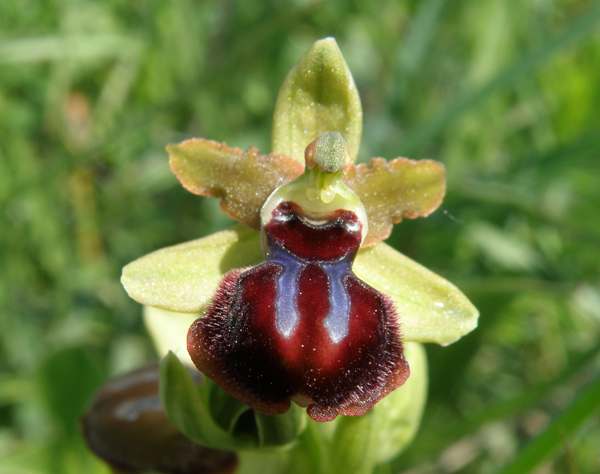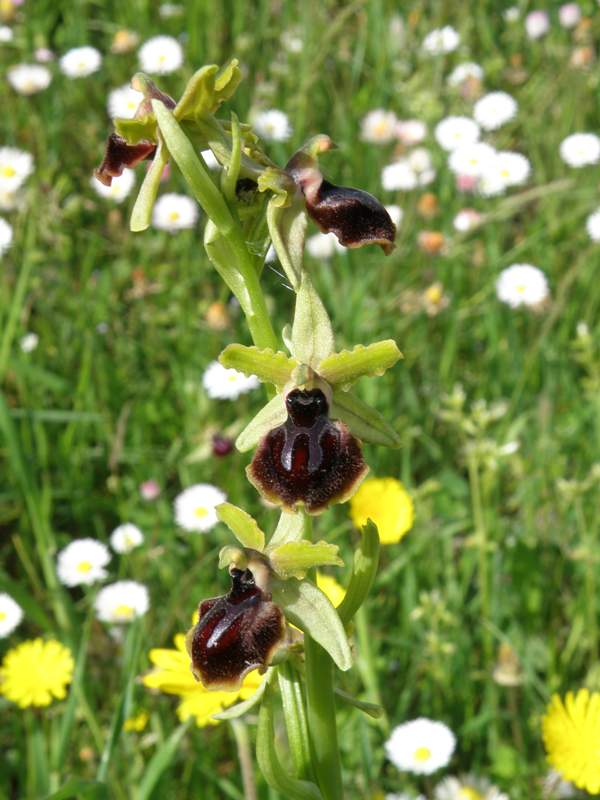Ophrys sphegodes subsp. passionis - Ophrys garganica
Phylum: Magnoliophyta - Class: Liliopsida - Order: Orchidales - Family: Orchidaceae

It would be possible to write an entire web page on the various names under which this orchid appears! Apart from those in the heading above, it is also known as Ophrys incubacea ssp. garganica. The only thing on which all are agreed is that it occurs in Italy in Calabria, Tuscany and, in particular, on the Gargano Peninsula, and it may also be known from Sardinia and Sicily. Future molecular studies may give a better idea of the relationship of this orchid to other species that occur in the same places.
This orchid is widespread in the Gargano Peninsula area (hence its synonymous name Ophrys garganica) but not common, and nowhere did we find large colonies. It flowers from the end of March and well into April, growing in sunny positions in meadows, garrigue and open woodland.

The specimen shown above was photographed on the Gargano Peninsula in April.
Etymology
The genus name Ophrys comes from Greek and means 'eyebrow' - a reference to the hairy fringe of the lip of the flower of many orchids in this genus. The specific epithet sphegodes comes from ancient Greek seems to suggest a wasp-like appearance of the flowers of this orchid., while the subspecies name passionis is a reference to the flowering time (around Easter - the passion).
Please Help Us: If you have found this information interesting and useful, please consider helping to keep First Nature online by making a small donation towards the web hosting and internet costs.
Any donations over and above the essential running costs will help support the conservation work of Plantlife, the Rivers Trust and charitable botanic gardens - as do author royalties and publisher proceeds from books by Pat and Sue.


